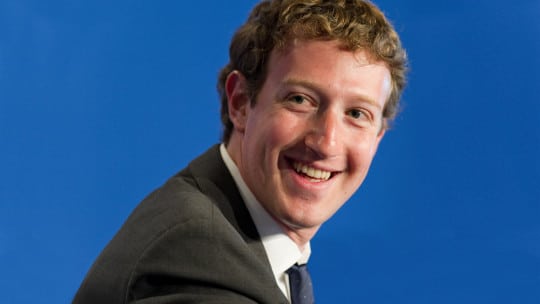
Pity the Facebook communicator tasked with protecting and building the brand. A browser search of Facebook Friday, Sept. 18, 2020, at 2pm ET, returned these headlines: Facebook Has Been a Disaster for the World (The NY Times), Facebook Accused of Watching Instagram Users Through Cameras (Bloomberg), Facebook ignored warning of violent militia, hate groups since 2015 (Business Insider), Parents Furious with Facebook over Oculus account change (USA Today).
As the man on television says, But wait, there’s more.
The story we want to highlight is related to the posts from the Times and Business Insider. Reports Thursday (Sept. 17, 2020) allege that Facebook chief Mark Zuckerberg plans to regulate his 50,000 employees’ internal communication. Specifically, this surrounds communication on Workplace, the company's employee social platform.
Zuckerberg spoke about the changes during a company town hall Thursday, according to spokesperson Joe Osborne. Facebook is set to lay out specifics this week. In the technical language of corporate communication, the announcement should be a doozy.
Workplace is for Work
The changes are meant to “ensure [Facebook’s] culture remains respectful and inclusive,” Osborne says. Adds Zuckerberg, somewhat cryptically, we "want to explore ways to preserve our culture of openness and debate."
Facebook listened to its employees before formulating the changes in policy.
“What we’ve heard…is that they want the option to join debates on social and political issues rather than see them unexpectedly in their work feed,” Osborne told CNBC. As such, Workplace will have designated areas for Facebook employees' social and political chats. And Facebook will moderate the chats.
Moreover, Facebook will insist staff communicate with professionalism, CNBC reports. It adds that employees may debate Facebook's work, but must do so in a respectful manner.
Zuckerberg, according to CNBC, said its updated communication policy will ensure all employees feel supported, “especially the company’s Black community.” Osborne added, the updates will "ensure our culture remains respectful and inclusive."
Where to Begin?
We're expecting specifics in this week's announcement will clear up Zuckerberg and Osborne's amorphous statements. As it stands now, though, there are complications on several levels.
First, as a tech behemoth that claims it champions free speech, Facebook is a large target when it does something that smacks of censorship. Facebook isn't alone in re-thinking its stance on free speech and employees. Google has done the same thing recently and at least once before.
In addition, media coverage implies that Facebook's policy changes have little to do with ensuring staff aren't interrupted during the work day. Instead, as the Nation puts it, "Facebook, long criticized for facilitating hate speech and incitement all over the world, is finally cracking down on one particular form of incendiary rhetoric: any criticism of Facebook management."
Back Story
For example, during a recent town hall, some employees blasted the company for giving safe haven to hate groups. Employees were furious with Zuckerberg, the stories allege.
Offering more proof that what happens at work rarely stays there, stories about the town hall leaked to the media.
[Update, September 23, 2020, 10am ET: The Verge obtained a slew of audio tapes, internal memos and posts during the summer. It's unveiling them now. Their content informs this post.]
Blood on Her Hands
Another brouhaha involves a recent memo from Sophie Zhang, a former Facebook employee. The 6,600-word note blasts Facebook for failing to regulate accounts that political parties used to make false claims and influence opinion. Zhang feels she left the company "with blood on her hands."
Also Thursday, Bloomberg BusinessWeek dove deep into Facebook's culture. Its report mentioned employee distaste for alleged ties to the Trump White House as well as to Joel Kaplan, the former George W. Bush official who's a Facebook VP for policy. These ties, critics claim, led to right-wing propaganda remaining on Facebook's platform.
Then there's the hate speech issue in India and the virtual walk-out of employees in June protesting a post from President Trump. Employees said the post incited violence. Facebook policy calls for the removal of content promoting violence.
- So, is Zuckerberg genuinely trying to guard employees' time by reducing incendiary, distracting discussions in the workplace?
- Or, is he attempting to tamp down employee leaks to media critical of how he runs his company? Perhaps it's both. Time will tell.
Stop the Bleeding
You can understand part of Zuckerberg's dilemma. No doubt the issues Facebook staffers are debating are social and political. Yet they also go to Facebook's essence. They're part of its work product.
- Can Zuckerberg separate employees' work conversations from social-political ones?
Something Zuckerberg said Thursday makes one wonder. Zuckerberg believes Facebook's updated employee communication policies will address “a lot of very tense conversations happening out in the world" (our emphasis).
It's hard to believe Zuckerberg doesn't realize heated conversations "out in the world" also are happening on Facebook and at Facebook. Moreover, they're occurring, in part, some argue, because of material posted on Facebook.
Of course, you can argue Zuckerberg's understanding of the world out there is wanting. Recall his initial reaction, in 2017, to reports that Moscow used Facebook to influence the 2016 US elections. "A pretty crazy idea," he said. Later, he ate his words.
Osborne, the Facebook communicator, told CNBC that it "deeply value[s] expression and open discussion." Let's not be naive. No company likes its dirty laundry aired in public. Still, added pressure comes when you hold yourself up, as Facebook does, as a beacon of free speech. How much Facebook and Zuckerberg "value expression and open discussion" among its employees remains to be seen.
Seth Arenstein is editor of PRNEWS and Crisis Insider
